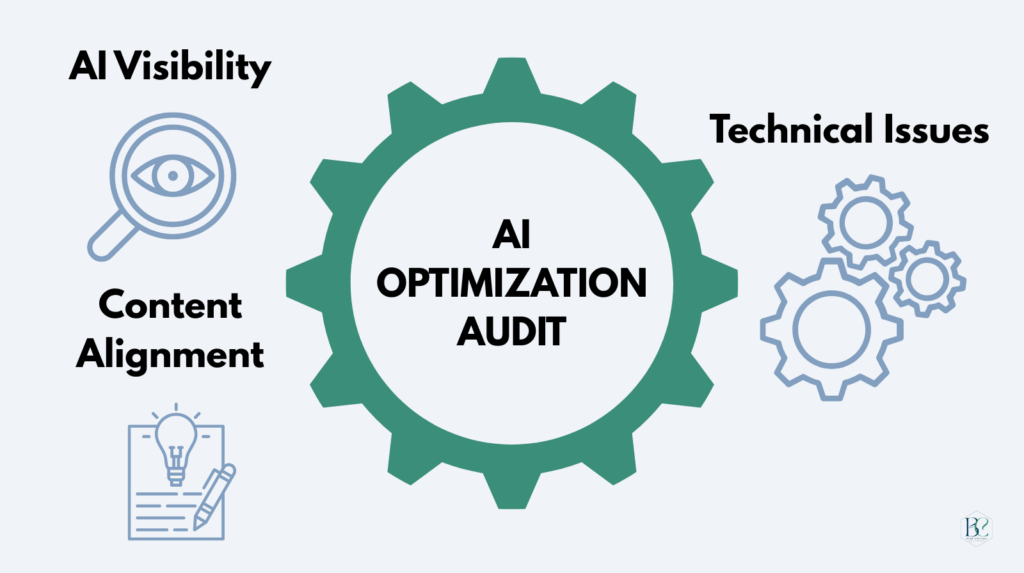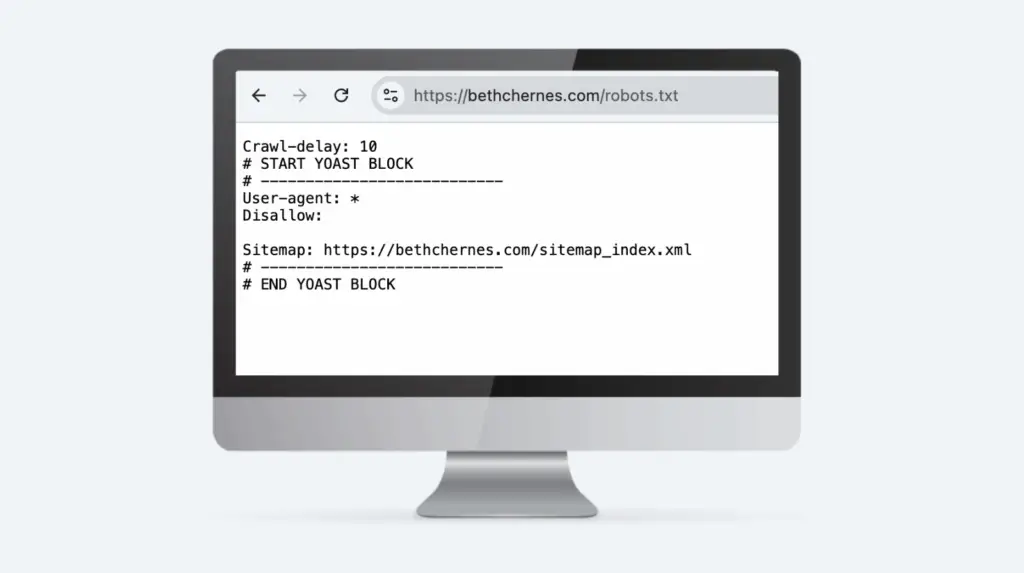
AI Search Optimization: How to Stay Visible in the Age of ChatGPT
Last week, I was chatting with my friend Dr. Michelle Bourbonniere—an SEO and website copy pro for small businesses—and we couldn’t stop talking about how
SEO Consulting & Strategy
Last week, I was chatting with my friend Dr. Michelle Bourbonniere—an SEO and website copy pro for small businesses—and we couldn’t stop talking about how much SEO is evolving.
Like two SEO geeks, we were gabbing about what this means for our field, our clients, and the next evolution of search.
There’s a lot of chatter right now about AI search and how it’s reshaping the search landscape. B2B companies and accounting firms are unsure what actually needs to change on their website to stay visible in both traditional search and AI-powered search. And I get it, it feels overwhelming.
It makes you question: “Is SEO even worth it right now?”
I’m here, as a freelance SEO strategist who’s in the weeds of AI search optimization, to emphatically say, SEO is more important than ever. AI search optimization is becoming just as important as traditional search engine optimization itself.
And here’s what I walk my clients through when we’re optimizing their site for the way search works now (and where it’s heading).

I know we technically need to “write for humans, first,” but…hear me out. Generative AI doesn’t read your whole page. It scans for structured content and pulls snippets.
Whether it’s AI overviews in Google or AI platforms like ChatGPT, your content needs to be easy to scan and answer questions clearly in one paragraph.
Add author bios or links to LinkedIn profiles. List credentials. Link to case studies. AI (and humans) trust authentic expert content
This is a big part of content optimization in today’s AI-driven search environment. The more trustworthy and transparent your expertise appears, the better your visibility in AI search results.
Use natural language and long-tail phrases. Include Q&A sections and headers written as real questions ( “How much does a business valuation cost?”). Get into your clients’ heads and think about how they’d phrase questions to find your services.
Understanding your client’s language helps you use AI tools effectively—whether you’re generating ideas, analyzing FAQs, or reviewing search results to see what’s ranking.
SEO Pro Tip: One easy way to understand EXACTLY how your clients talk? Start recording calls and meetings. An app I’ve been using for the past year and has become integral to my processes is Otter.ai. There are a few competitors out there like: Fireflies.ai and Fanthom, but I’ve been an Otter.ai convert.)
Google looks for brand mentions across the web, especially from reputable sources. Focus on PR, industry features, and thought leadership. This means dabbling in the depths of Digital PR. If you don’t have backlinks, now is the time to invest in high authority opportunities to speak about your brand, what you do, and who you serve.

Don’t be scared to be on a podcast or pitch to high authority platforms for an interview. These mentions boost your search engine visibility and your credibility across AI search engines as well.
Clean up technical SEO issues. Add schema. Because a schema and clean technical structure make it easier for AI platforms and search engines to interpret your content. This is where engine optimization meets AI search optimization.
And please ensure that AI crawlers aren’t blocked on your robots.txt. If AI can’t see it, it won’t share it. If you can, also add an LLMs.txt to your backend.
Your site might be cited in ChatGPT or Gemini, even if you didn’t plan for it. Start checking how your brand appears and whether the info is accurate. You can do this through tools like Otterly.ai or through customized Looker Studio reports (like I do for my clients), showing referral traffic from AI.
This isn’t about chasing traffic; it’s about building visibility with the right audience.
As AI tools like ChatGPT, Gemini, and Perplexity evolve, understanding your visibility in AI is becoming a key part of SEO strategy.
Before you get into the complexities of boosting your brand’s visibility in AI search, here’s how to quickly get started. Begin by conducting an audit of these three key aspects of your site.

Check if your brand or content appears in AI-powered search results (like ChatGPT, Gemini, or Perplexity).
Look at which keywords and topics are actually bringing visitors to your site versus the ones you want to rank for.
Audit your site speed, mobile performance, schema, and crawlability.

AI isn’t killing SEO, but some of the goals are shifting. AI is revolutionizing how we think about what websites should do and how the right people can find our businesses. The future belongs to companies that embrace AI-driven search optimization while staying grounded in solid, traditional SEO strategies.
Have you seen your company pop up in ChatGPT or Gemini yet? Let me know.
I work with accounting, financial, and professional services firms to make sure their sites get found by the right clients.
If you’re looking for an SEO consultant who delivers real results through strategic SEO services, reach out. Let’s make your website work harder for you. Contact me today.